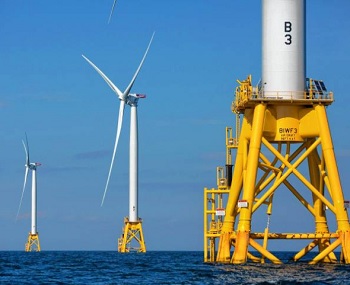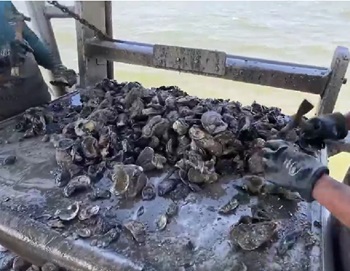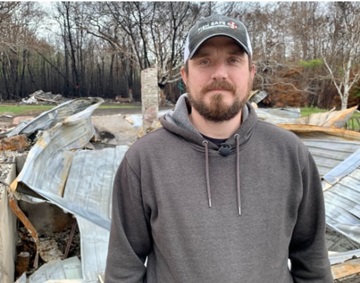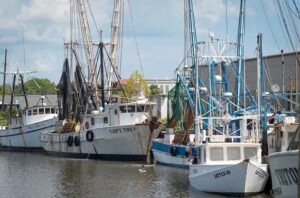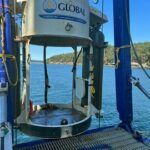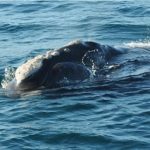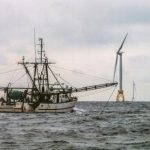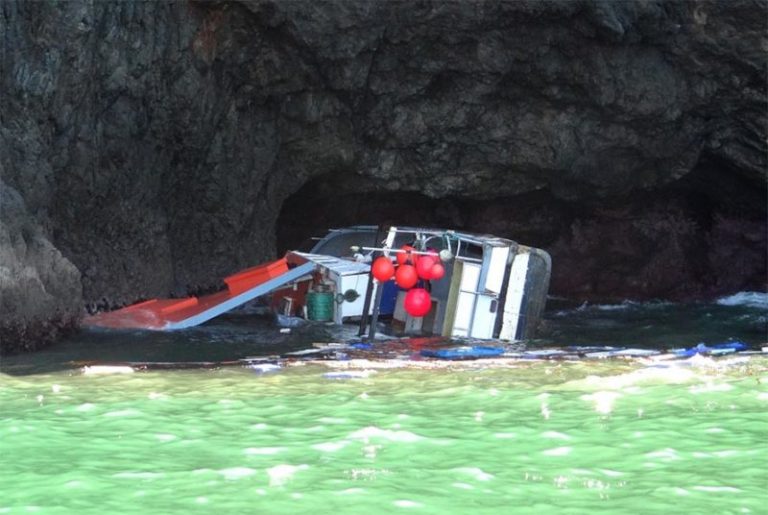Tag Archives: Fishermen
Canada’s largest lobster fishery set to begin amid threat of Trump tariffs
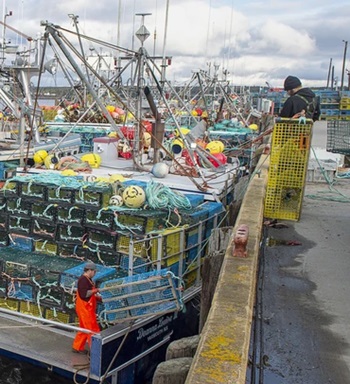 Trump’s inauguration is still a couple of months away, he officially takes office on Jan. 20, but fishermen are trying to take the threat in stride while preparing for the season to open Nov. 25. “People are concerned, but until it happens, we’ll just carry on,” Geoff Irvine, executive director of the Lobster Council of Canada, said. “There’s not a lot we can do to prepare and speculating on what it could mean doesn’t really get us anywhere.” As a result, the stakes are high if U.S. president-elect Donald Trump makes good on his campaign promise to impose duties of between 10 per cent and 20 per cent on all imported goods. While fishermen are worried about how this will play out, he said they have more immediate concerns on their minds. “What’s the catch going to be like?” he said. “What’s the price of lobster going to be like? What’s the weather going to be like? “more, >>CLICK TO READ<< 15:26
Trump’s inauguration is still a couple of months away, he officially takes office on Jan. 20, but fishermen are trying to take the threat in stride while preparing for the season to open Nov. 25. “People are concerned, but until it happens, we’ll just carry on,” Geoff Irvine, executive director of the Lobster Council of Canada, said. “There’s not a lot we can do to prepare and speculating on what it could mean doesn’t really get us anywhere.” As a result, the stakes are high if U.S. president-elect Donald Trump makes good on his campaign promise to impose duties of between 10 per cent and 20 per cent on all imported goods. While fishermen are worried about how this will play out, he said they have more immediate concerns on their minds. “What’s the catch going to be like?” he said. “What’s the price of lobster going to be like? What’s the weather going to be like? “more, >>CLICK TO READ<< 15:26
It’s Time to Abandon UMaine’s Offshore Wind Scheme in Favor of Cheaper Alternatives
 The federal government this week blocked a proposal that would have allowed the Mills Administration and labor unions to bulldoze Sears Island into an industrial wind power port. Although this hard-fought victory is good news for fishermen, ratepayers, taxpayers, and the environment, it’s only temporary. The Mills Administration has given no indication that it will stop its relentless pursuit of expensive and unworkable offshore wind schemes. Depending on how Election Day turns out, the Legislature could be back at the drawing board devising other ways to enrich the wind turbine industry and destroy pristine ocean environments. So it’s worth remembering how we got here, and how Maine’s institutions and media became witting and unwitting pawns in an expensive game of crony capitalism. more, >>CLICK TO READ<< 06:35
The federal government this week blocked a proposal that would have allowed the Mills Administration and labor unions to bulldoze Sears Island into an industrial wind power port. Although this hard-fought victory is good news for fishermen, ratepayers, taxpayers, and the environment, it’s only temporary. The Mills Administration has given no indication that it will stop its relentless pursuit of expensive and unworkable offshore wind schemes. Depending on how Election Day turns out, the Legislature could be back at the drawing board devising other ways to enrich the wind turbine industry and destroy pristine ocean environments. So it’s worth remembering how we got here, and how Maine’s institutions and media became witting and unwitting pawns in an expensive game of crony capitalism. more, >>CLICK TO READ<< 06:35
Now or never
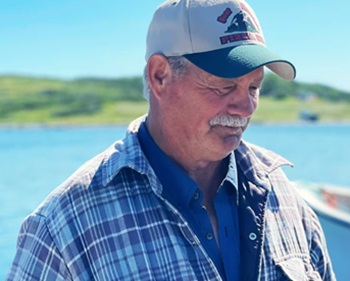 Fishermen in Newfoundland and Labrador may have acquired a reputation of getting riled up and rowdy when things aren’t going their way: crashing news conferences, for instance, or blocking the doors to Confederation Building in St. John’s. Carl Hedderson and the handful of harvesters left on the northern tip of Newfoundland say they are not those kinds of fishermen. “Nobody hears us because I guess we’re not complaining enough,” says Hedderson. Since 2022, Carl Hedderson has been quietly but diligently advocating to the federal government to issue new lobster permits so he and the other fishermen in the area can both assess and access the lobster stock and save a way of life that Hedderson says will die with his generation. “That’s the only thing that’s going to save us,” said Hedderson. photos, more, >>CLICK TO READ<< 07:01
Fishermen in Newfoundland and Labrador may have acquired a reputation of getting riled up and rowdy when things aren’t going their way: crashing news conferences, for instance, or blocking the doors to Confederation Building in St. John’s. Carl Hedderson and the handful of harvesters left on the northern tip of Newfoundland say they are not those kinds of fishermen. “Nobody hears us because I guess we’re not complaining enough,” says Hedderson. Since 2022, Carl Hedderson has been quietly but diligently advocating to the federal government to issue new lobster permits so he and the other fishermen in the area can both assess and access the lobster stock and save a way of life that Hedderson says will die with his generation. “That’s the only thing that’s going to save us,” said Hedderson. photos, more, >>CLICK TO READ<< 07:01
“We’re not getting the full value out of it”: The future of local seafood in Louisiana
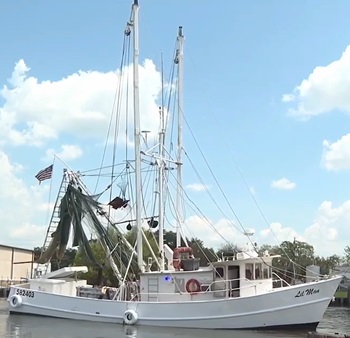 “Industries change over time, like anywhere you are, and so we’re just adapting to the new realities of the seafood supply chain.” LSU’s Seafood Processing Demonstration Lab is a hub for research and innovation. “Our main focus is in underutilized species and byproduct recovery,” said. As the only facility of its kind in-state, this Louisiana Sea Grant-sponsored program works with local processors, restaurateurs, and fishermen, to build local connections. “Louisiana is the #2 seafood state in the nation,” said co-director Thomas Hymel, “but a lot of our product is uh–we’re not getting the full value out of it.” Video, more, >>CLICK TO READ<< 10:10
“Industries change over time, like anywhere you are, and so we’re just adapting to the new realities of the seafood supply chain.” LSU’s Seafood Processing Demonstration Lab is a hub for research and innovation. “Our main focus is in underutilized species and byproduct recovery,” said. As the only facility of its kind in-state, this Louisiana Sea Grant-sponsored program works with local processors, restaurateurs, and fishermen, to build local connections. “Louisiana is the #2 seafood state in the nation,” said co-director Thomas Hymel, “but a lot of our product is uh–we’re not getting the full value out of it.” Video, more, >>CLICK TO READ<< 10:10
Fishermen organizing ‘flotilla’ protest against offshore wind
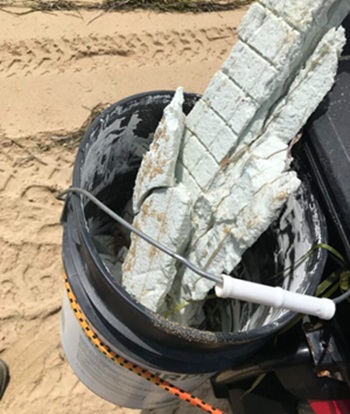 In response to recent concerns over offshore wind and with debris washing up on Nantucket and Island beaches from a fractured turbine blade, the New England Fisherman’s Stewardship Association (NEFSA) has organized a “flotilla” for this Sunday, bringing fishing boats together to peacefully protest in unison against the offshore wind industry. Boats will be joining together in a “boat parade” from various areas of the east coast, said NEFSA founder and CEO Jerry Leeman, including the Vineyard, Nantucket, parts of Massachusetts, Rhode Island and potentially New Jersey. more, >>CLICK TO READ<< 07:03
In response to recent concerns over offshore wind and with debris washing up on Nantucket and Island beaches from a fractured turbine blade, the New England Fisherman’s Stewardship Association (NEFSA) has organized a “flotilla” for this Sunday, bringing fishing boats together to peacefully protest in unison against the offshore wind industry. Boats will be joining together in a “boat parade” from various areas of the east coast, said NEFSA founder and CEO Jerry Leeman, including the Vineyard, Nantucket, parts of Massachusetts, Rhode Island and potentially New Jersey. more, >>CLICK TO READ<< 07:03
The Vietnamese Impact on Jefferson Parish’s Seafood Industry
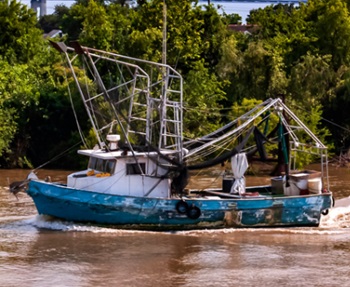 For centuries, the Port of New Orleans has been the entry point for immigrants arriving in the country. Many of those immigrants took jobs in local industries, like fishing. Perhaps no other immigrant community has contributed more to the fishing industry in Louisiana than Vietnamese Americans. Among the more recent ethnic groups to settle in the state, many came as refugees, fleeing their war-torn homeland after the fall of Saigon in 1975. For many newcomers, the fishing industry was an easy transition. They simply had to adapt their knowledge of fishing in Vietnam’s swamps and coastlines to those of Louisiana. Today, almost two-thirds of Southeast Louisiana’s commercial shrimping fleets are made up of Vietnamese Americans. Their contributions didn’t stop at simply being laborers, though. Vietnamese immigrants also brought with them their recipes and cooking techniques, infusing them with traditional Southeast Louisiana cuisine. more, >>CLICK TO READ<< 07:50
For centuries, the Port of New Orleans has been the entry point for immigrants arriving in the country. Many of those immigrants took jobs in local industries, like fishing. Perhaps no other immigrant community has contributed more to the fishing industry in Louisiana than Vietnamese Americans. Among the more recent ethnic groups to settle in the state, many came as refugees, fleeing their war-torn homeland after the fall of Saigon in 1975. For many newcomers, the fishing industry was an easy transition. They simply had to adapt their knowledge of fishing in Vietnam’s swamps and coastlines to those of Louisiana. Today, almost two-thirds of Southeast Louisiana’s commercial shrimping fleets are made up of Vietnamese Americans. Their contributions didn’t stop at simply being laborers, though. Vietnamese immigrants also brought with them their recipes and cooking techniques, infusing them with traditional Southeast Louisiana cuisine. more, >>CLICK TO READ<< 07:50
Lifting Up the Patron Saint of Netmakers, Shipbuilders, and Fishermen
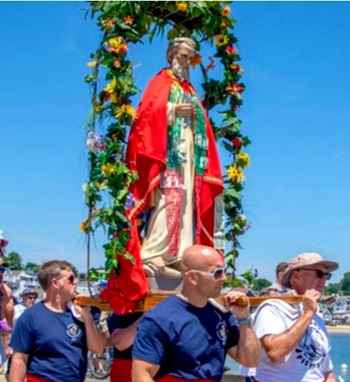 The 28th Provincetown Portuguese Festival begins Friday, June 28 with live music and dancing in Portuguese Square on Ryder Street. During the three-day-long celebration, Capt. Kenny Silva will lead a fishing derby on MacMillan Pier, fishermen will tell stories on Ryder Street where there will also be a crafts fair and poetry, and the Knights of Columbus will hold a soup tasting under a tent at the Bas Relief Park behind Provincetown Town Hall. But for at least some people, none of this will compare to the event happening for the 77th time, the Blessing of the Fleet at MacMillan Pier. “Everyone confuses the festival for the blessing,” says Provincetown fisherman Alex Brown. “The festival leads into the blessing, but the blessing is a separate event — it’s always the last Sunday of the month.” Photos, more, >>CLICK TO READ<< 13:14
The 28th Provincetown Portuguese Festival begins Friday, June 28 with live music and dancing in Portuguese Square on Ryder Street. During the three-day-long celebration, Capt. Kenny Silva will lead a fishing derby on MacMillan Pier, fishermen will tell stories on Ryder Street where there will also be a crafts fair and poetry, and the Knights of Columbus will hold a soup tasting under a tent at the Bas Relief Park behind Provincetown Town Hall. But for at least some people, none of this will compare to the event happening for the 77th time, the Blessing of the Fleet at MacMillan Pier. “Everyone confuses the festival for the blessing,” says Provincetown fisherman Alex Brown. “The festival leads into the blessing, but the blessing is a separate event — it’s always the last Sunday of the month.” Photos, more, >>CLICK TO READ<< 13:14
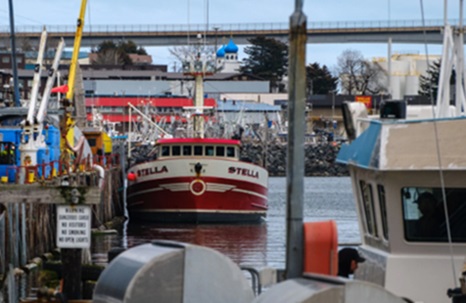
The seafood industry is in trouble. Processors and policy makers blame Russia.
Alaska waters produce the most seafood in the country, and many of the state’s coastal communities depend on commercial fisheries to sustain their economy. But Alaska’s fisheries are facing a massive economic slump right now and policymakers are increasingly blaming flooded global markets. The private sector and federal policymakers are teaming up to try to stop the bleeding. Last year was brutal on the seafood industry. Processing companies and fishermen alike suffered amid cratering prices, and they blamed Russia for flooding markets. Republican U.S. Sen. Dan Sullivan, from Alaska, pointed his finger at the country at a news conference on May 23. “Russians have essentially admitted they’re not just at war in Ukraine, they’re at war with the American fishing industry,” he said. more, >>CLICK TO READ<< 16:03
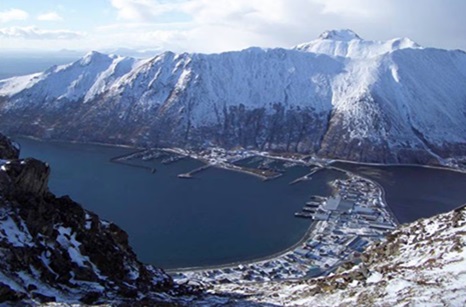
OPINION: Fighting for our lives in King Cove
I am a fisherman; one of my grandfathers was a fisherman and the other one was a lifelong employee of Peter Pan Seafoods. My father was a fisherman, my brother is a fisherman and my mother, for much of her working life, worked for Peter Pan. We live in the southwest Aleut community of King Cove. For my extended family and all the other families like mine, we rely upon our knowledge of the ocean, our skills in the harvesting of fish, and a fish processor that pays a fair price. At the end of each day, we enjoy the satisfaction of hard work paying off. As King Cove’s mayor, it hurts my heart to say that it has taken only a few short months for me to no longer recognize my world. Events have conspired to threaten our very existence. A collapse of our incomes, individually and citywide, the shock of realizing that municipal projects, many years in the making, may grind to a halt. more, >>CLICK TO READ<< 20:35
Swordfish are moving north in Canadian waters
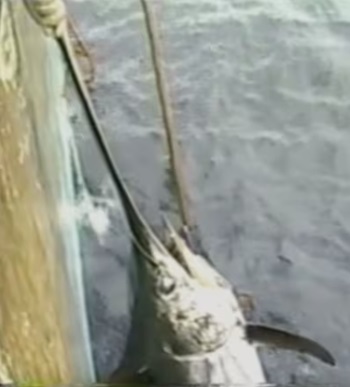 “It’s still unclear whether this is becoming the new normal due to climate change or if the biomass will eventually shift back again as we think it did historically,” said Fisheries and Oceans Canada biologist Kyle Gillespie. Nineteen-hundred tonnes of swordfish were landed in Canada last year. Nearly a third of the swordfish were taken off Newfoundland, where longline fishing boats from Nova Scotia trailed kilometres of baited hooks throughout much of the summer. Gillespie said this is a rapid shift from the previous decade, when the entire Canadian catch was concentrated along the Scotian Shelf and Georges Bank off southern Nova Scotia. more, >>click to read<< 08:46
“It’s still unclear whether this is becoming the new normal due to climate change or if the biomass will eventually shift back again as we think it did historically,” said Fisheries and Oceans Canada biologist Kyle Gillespie. Nineteen-hundred tonnes of swordfish were landed in Canada last year. Nearly a third of the swordfish were taken off Newfoundland, where longline fishing boats from Nova Scotia trailed kilometres of baited hooks throughout much of the summer. Gillespie said this is a rapid shift from the previous decade, when the entire Canadian catch was concentrated along the Scotian Shelf and Georges Bank off southern Nova Scotia. more, >>click to read<< 08:46
Gloucester: During protest in harbor, fishermen say fish rules need more leeway
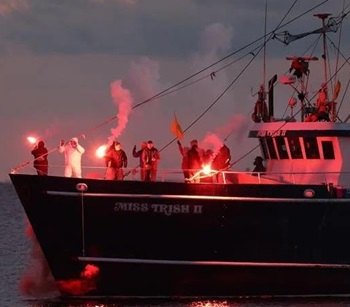 More than 50 people, including fishermen, their families and supporters, stood along Stacy Boulevard in the cold at dusk Wednesday to watch the 96-foot dragger F/V Miss Trish II steam into the Outer Harbor with its crew waving flares in a protest. A couple of smaller fishing vessels followed. The short and peaceful protest was called by Russo, after two trips this fall during which the Massachusetts Environmental Police allege a small percentage of the vessel’s catch was below minimum size, despite, he says, taking steps to follow the rules, including using at-sea monitors and installing cameras on the vessel for a second trip. Russo’s father and owner of the Miss Trish II, Capt. Enzo Russo, and some of the Miss Trish II crew stood along the boulevard in support. “And now the law says we’ve got 100% observers the whole time,” Enzo Russo said. 7 Photos, more, >>click to read<< 10:05
More than 50 people, including fishermen, their families and supporters, stood along Stacy Boulevard in the cold at dusk Wednesday to watch the 96-foot dragger F/V Miss Trish II steam into the Outer Harbor with its crew waving flares in a protest. A couple of smaller fishing vessels followed. The short and peaceful protest was called by Russo, after two trips this fall during which the Massachusetts Environmental Police allege a small percentage of the vessel’s catch was below minimum size, despite, he says, taking steps to follow the rules, including using at-sea monitors and installing cameras on the vessel for a second trip. Russo’s father and owner of the Miss Trish II, Capt. Enzo Russo, and some of the Miss Trish II crew stood along the boulevard in support. “And now the law says we’ve got 100% observers the whole time,” Enzo Russo said. 7 Photos, more, >>click to read<< 10:05
Crisis Hotline: New option for farmers, ranchers, loggers and fishermen in Oregon
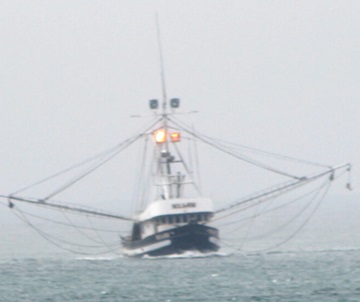 A new hotline, the Agristress Helpline, launched in Oregon in September. It is tailored to support those who work in agriculture, forestry or the fishing industry through a phone and text service that operates 24 hours a day, seven days a week. The helpline is free and has trained counselors with experience in those industries who can take phone calls in 160 languages, with English, Spanish and Vietnamese professionals available to respond by text. Experts say the line is sorely needed. Although the 988 crisis line provides a similar service, the Agristress line is specialized to address the needs of farmers, ranchers, loggers and fishermen. They often work in social and geographic isolation and in areas with limited access to health care services. These professions also have to grapple with extreme weather conditions, such as flash flooding or drought, and they face fluctuating commodity prices. >>click to read<< 18:06
A new hotline, the Agristress Helpline, launched in Oregon in September. It is tailored to support those who work in agriculture, forestry or the fishing industry through a phone and text service that operates 24 hours a day, seven days a week. The helpline is free and has trained counselors with experience in those industries who can take phone calls in 160 languages, with English, Spanish and Vietnamese professionals available to respond by text. Experts say the line is sorely needed. Although the 988 crisis line provides a similar service, the Agristress line is specialized to address the needs of farmers, ranchers, loggers and fishermen. They often work in social and geographic isolation and in areas with limited access to health care services. These professions also have to grapple with extreme weather conditions, such as flash flooding or drought, and they face fluctuating commodity prices. >>click to read<< 18:06
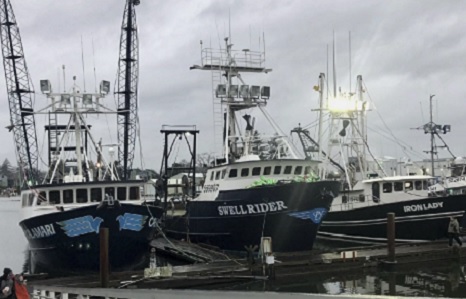
‘They’re not listening’: Fishermen, tribes voice concerns on two Oregon coast sites eyed for offshore wind farms
Last week, the Federal Bureau of Ocean Energy Management (BOEM) announced two draft Wind Energy Areas off the southern Oregon coast. One of them is offshore of Brookings, near the California border, the other off the coast of Coos Bay. The areas also represent prime fishing grounds and important cultural areas to local Indigenous tribes. Heather Mann, executive director of the Newport-based Midwater Trawlers Cooperative, said it feels like a lot of stakeholders’ concerns are being left unheard. “They’re not listening to coastal communities. They’re not listening to the fishing industry. They’re not listening to congressional representatives,” said Mann, whose organization represents 32 vessels that fish in the area. “Fishermen are not just concerned about being displaced from fishing grounds, though that is a critical piece. ” Video, >click to read< 11:35
Fishermen, activists protesting offshore wind projects on the East Coast
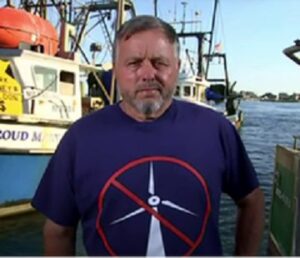 Critics are sounding the alarm on the ecological consequences of the Biden administration’s green energy agenda, specifically the increase marine wildlife deaths in conjunction with offshore wind farms. Activists along with local fishermen are particularly concerned about the rise in whale and dolphin beaching. “What we’re seeing is a failure to properly manage the situation,” Rhode Island fisherman Chris Brown said. “The whales have been migrating from their southern stations during the spring up through the mid-Atlantic region, and they didn’t even slow down the acoustic carpet bombing. And as a result, the Atlantic was littered with the dead whales and dolphins and sharks. There doesn’t seem to be any environmental concern. This is a manmade environmental disaster that’s unfolding. I expect that it will half a whale population in 10 years and probably the same for our fish.”Video, photos, >click to read< 19:17
Critics are sounding the alarm on the ecological consequences of the Biden administration’s green energy agenda, specifically the increase marine wildlife deaths in conjunction with offshore wind farms. Activists along with local fishermen are particularly concerned about the rise in whale and dolphin beaching. “What we’re seeing is a failure to properly manage the situation,” Rhode Island fisherman Chris Brown said. “The whales have been migrating from their southern stations during the spring up through the mid-Atlantic region, and they didn’t even slow down the acoustic carpet bombing. And as a result, the Atlantic was littered with the dead whales and dolphins and sharks. There doesn’t seem to be any environmental concern. This is a manmade environmental disaster that’s unfolding. I expect that it will half a whale population in 10 years and probably the same for our fish.”Video, photos, >click to read< 19:17

Search for Steuben Lobsterman Missing Since Friday, July 21st Continues
Steuben – The Maine Marine Patrol is continuing a targeted search today for lobsterman Tylar Michaud, 18 of Steuben, who has been missing since Friday, July 21st. Today’s search involves the Maine State Police/Marine Patrol Dive Team, Maine Warden Service, Marine Patrol vessels and airplane along with additional air support from the Army National Guard and members of the Air National Guard using personal aircraft. The search, which has been on-going since last Friday, has also involved many members of the local community and fishermen. Today’s search is focusing on the waters near Petit Manan Island.
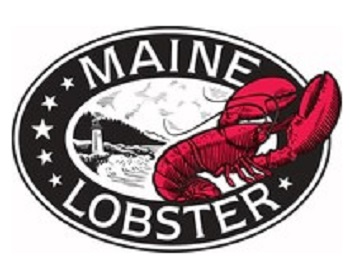
The Maine Lobster Industry Debuts First-Ever “Celebrate the Maine Lobster Roll,” an Impactful Twist on This Iconic Summer Dish
Lobster lovers, listen up. This summer, the Maine Lobster Marketing Collaborative (MLMC) is partnering with local restaurants and nationwide distributors to debut a new special: the “Celebrate the Maine Lobster Roll.” The “Maine Characters” campaign will spotlight the broad impact the fishery has on the state of Maine and will feature the stories of the individuals behind the industry – from the fishermen to the processors, dealers, trap builders, restaurants owners and more. The “Celebrate the Maine Lobster Roll” will give diners a taste of the impact with custom materials including toothpicks, placemats, sandwich paper and postcards that feature these individuals, along with a QR code to the “Maine Characters” digital hub to learn more. The best part? Every roll sold will help support the fishery. >click to read< 08:29
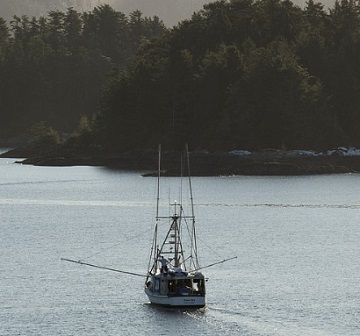
Fishermen fear future fishery management, delisting in SE Alaska
Chinook fishermen are celebrating the start of the 2023 summer troll season in Southeast Alaska after months of lawsuits and uncertainty blocked the fishery. Since the fishery opened two weeks ago, fishermen, some based in Bellingham, have been out in droves, keeping the $85 million industry afloat for another season. But the celebration, some say, may be premature. Fishermen across the region are keeping a close eye on the final decision in the lawsuit, anticipated later this year, and they expect more legal challenges next year. “I’m worried this is going to happen again and again and again and again,” Whatcom resident and fisherman Michael Jackson said from the deck of his fishing vessel in Alaskan waters. “To have this [fishery] turned into a political argument, and shut down people’s livelihoods, it makes me sick. It makes me absolutely sick.” >click to read< 11:51
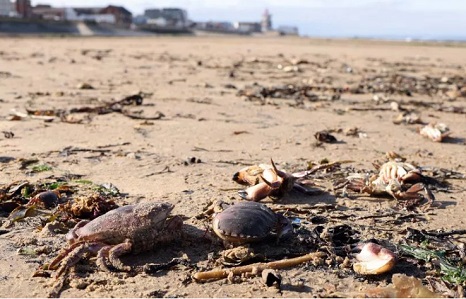
Fishing group’s list of over 100 reports of incidents and concerns since 2021 marine die-offs
Since October 2021, fishermen have been battling for the region’s ecosystem after swathes of dead crabs, lobsters, and shellfish washed up on beaches. Environmentalists and fishermen fought for answers – with the Department for Environment Food and Rural Affairs eventually launching a probe.While the initial Defra report said an algal bloom was the most likely cause, further investigations found that a “novel pathogen” was most likely to blame. Independent marine and university experts as well as the fishermen believed dredging on the Tees unearthed historical toxins leading to the mass die off – but this has also been ruled out by the authorities. Incident reports listed by the NEFC, and what a sad list it is, >click to read< 21:34
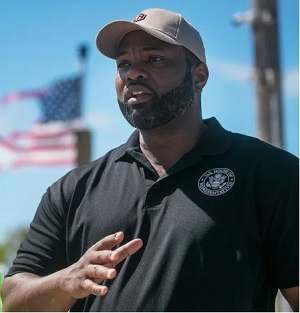
Fishermen join disaster response effort
It took 10 years for Casey Streeter to build his fishing business, but it took just 10 hours for it all to be washed away. When Hurricane Ian hit Florida last September, local Pine Island fisherman Streeter lost nearly everything. But everything changed when Streeter got a personal call from AshBritt’s founder Randy Perkins to join him in recovery efforts. That’s why it was special for Streeter to join Congressman Byron Donalds to experience AshBritt’s coordinated debris removal work in action. >click to read< 11:33

R.I. fishermen threaten legal action over South Fork wind farm
A group of fishermen in Rhode Island is threatening to sue the state’s coastal agency, the federal government, and developer Ørsted over the under-development of the South Fork wind farm in federal waters off Rhode Island. The Fishermen’s Advisory Board and the individual fishers it represents said in a letter Wednesday that the deal to approve the South Fork wind farm did not adequately compensate them for their losses. Making matters worse, they say, a fishing vessel working on the project broadcast over a radio channel used for emergency and distress calls in April that nobody was allowed within a mile and a half of either side of recent work to construct the project’s cable. >click to read< 07:46
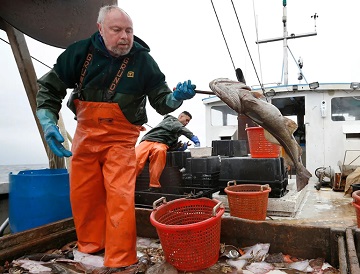
Are cod ‘severely depleted’ in the Gulf of Maine? Fishermen, scientists view ocean depths differently
When fishermen and women look at the gray Atlantic waters off New England, they see a marine environment literally swimming with cod, the popular white fish prized around the world for its mild flavor. Scientists, on the other hand, say Atlantic cod stocks in the Gulf of Maine are severely depleted and possibly vulnerable to extinction. The question of how fishermen and marine scientists employed by government agencies can view cod numbers so differently has puzzled Micah Dean, a marine biologist with the state of Massachusetts, for years. While a doctoral student at Northeastern University, Dean believed he came up with an answer. >click to read< 19:00
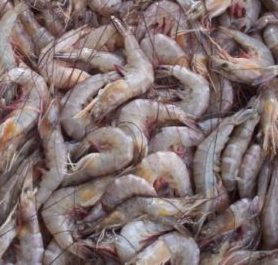
Shrimpers and environmentalists oppose growth of LNG export facilities
LNG export facilities are heralded as good things to come and economic game changers, but there are still fishermen and environmentalists who fight the massive industry. They went before the Louisiana Shrimp Task Force on Wednesday. Many local commercial fishers and environmentalists remain firmly against the LNG facilities and they took their fight to the task force. Fisherman Travis Dardar said in Cameron they are surrounded. He said he lives within four hundred feet of Venture Global. “The areas I’ve got marked in red are where we fish. They built on top of all our fishing grounds out here. The little red ‘X’ on this side is where I live. Now conveniently, Cameron has no zoning, so they don’t have to buy us out. They can absolutely build around us,” Dardar said. >click to read< 08:50

Are we really going to let them kill our ocean and our fishing way of life?
Generations of fishermen are no longer fishing because of the restrictions and unfair quota from faulty science. Like I said in earlier posts, we went from 400 active boats down to 17 barely active boats. Meanwhile conservation groups will tell you that we are wiping the ocean out from overfishing. That is so wrong on so many levels, it isn’t even funny. Hard to believe New England was considered to be sustainable for haddock and lobsters. Then fishing efforts went down and now we are no longer sustainable. The only thing that’s changed is windmills are on their way to the Gulf of Maine and the management at NOAA and NMFS are allowing it to happen. Why would they not talk to the people who have committed their lives to the job of harvesting our ocean?! Well, I can’t speak for everyone, but I have a few hypotheses. By Jerry Leeman. >click to read< 16:38
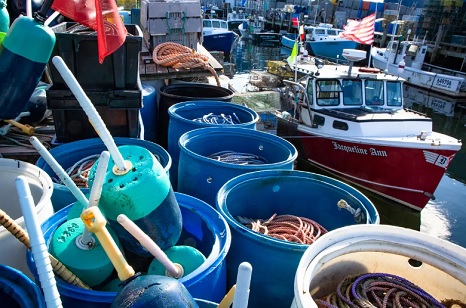
Lobster buoys mark the spot of lives spent fishing on the Maine coast
The colors, as varied as they can be, abundantly dot the blue surface of Maine waters like an Easter basket brimming with brightly painted eggs. They look alike for the most part, but are in many ways distinct and different, just like people. And with an imminent storm approaching by way of more regulations aimed at protecting whales, I fear for the worst and hope for the best as I remember the first time I watched fishermen work the water one summer Down East. The buoy is a fisherman’s calling card. It is also his note to self of where he was yesterday and where he will be going tomorrow. But more importantly, it is his signature of a life lived on the water. >click to read< 09:07
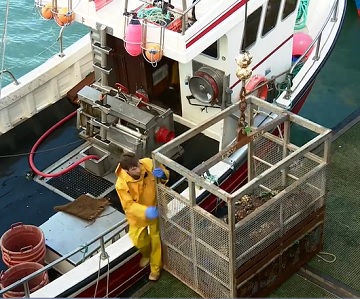
Fishermen warn Jersey’s marine industry ‘cannot survive’ without assistance
Jersey‘s fishing industry is at risk as long-standing fishermen leave the job, saying they simply ‘cannot survive anymore’. In the last few years, the fleet has dropped from around 60 to 30 boats, and some have even moved to the UK where they can make more money. Fishermen blame ongoing tensions with France over licences and the rising cost of bait and fuel for the industry now reaching ‘crisis point’. Video, >click to read< 08:48
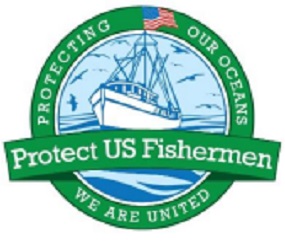
Website shines a light on offshore wind farms
Fishermen, an informal coalition of more than two dozen organizations concerned about the environmental and economic impacts of proposed offshore wind farms in the Pacific Ocean, launched a new website on Monday. Visitors to protectUSfishermen.org will find details not only on the current push to place wind turbine farms off the coast of Oregon, but also learn about the sustainable seafood industry and its positive impacts on the economy and food security. For those wishing to gain a broad understanding of the debate surrounding offshore wind, the site provides a comprehensive overview. Those wishing to take a “deep dive” into the issue can click on a variety of links to well-documented studies and positions from credible sources around the world. >click to read< 16:00
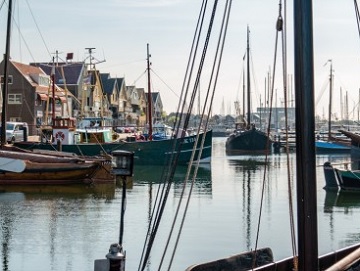
Dutch fisheries will shrink considerably in the coming years
The Dutch commercial fishing fleet will shrink by 10 to 15 percent over the next five years. Many fishermen are getting into money trouble, partly because of declining turnover and high fuel costs. The financial support announced by the government will be too late for some of the fishermen, ABN Amro predicted based on its own research. About a third of fishermen think they could run into financial problems in the coming years. Brexit and the expansion of wind farms has also caused concerns for fishermen. The new distribution of fishing rights means that many fishermen are no longer allowed to catch as many fish as before Brexit. >click to read< 18:55






